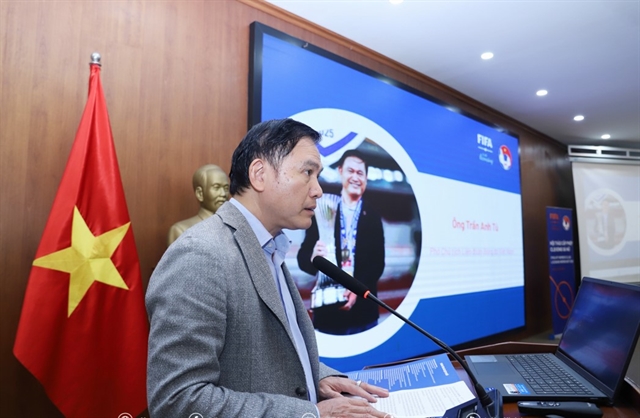 Opinion
Opinion
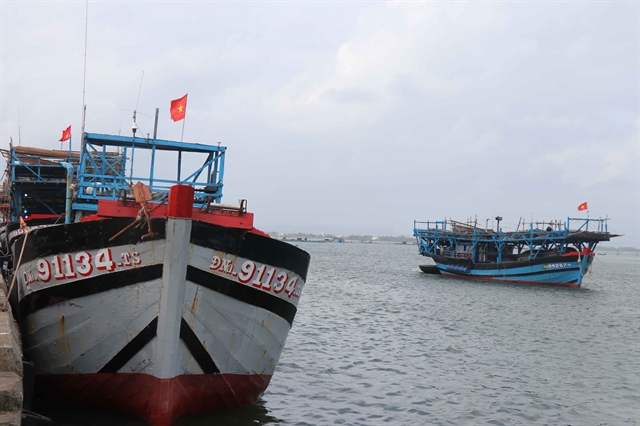
KIỀU TRINH
HÀ NỘI — As digital technology continues to transform the way people work, communicate and travel, cybercrime has become increasingly sophisticated. In Southeast Asia, a region known for its dynamic economies and tech-savvy youth, the rapid rise of online scams, digital fraud and technology-facilitated human trafficking has emerged as a pressing concern.
To address these challenges, the International Organization for Migration (IOM), in partnership with the Embassy of Canada in Việt Nam, has launched ThinkB4UClick, a youth-focused training initiative designed to equip young people with practical knowledge and digital skills to prevent human trafficking, strengthen critical thinking and promote online safety.
Việt Nam News spoke with Kendra Rinas, Chief of Mission at IOM Việt Nam, about these evolving threats and the collective efforts needed to build a safer and more responsible digital environment.
 |
In today’s fast-evolving digital landscape, what are the main online risks facing young people and how serious is the problem of cyber-enabled scams and human trafficking in Southeast Asia and Việt Nam?
Young people today are what we call digital natives – creative, curious and full of potential. Yet this digital power also comes with certain risks. Across Southeast Asia, online scams, fake job offers and digital exploitation have emerged as new forms of human trafficking.
Here in Việt Nam, we’ve seen a sharp increase in AI-generated scams and deepfake impersonations, with criminals pretending to be government officers, recruiters or even family members. These scams are not only financial; they isolate victims and sometimes lead to trafficking and forced labour. This highlights something crucial: human trafficking is no longer only physical. It is digital, complex and increasingly difficult to detect.
In Việt Nam recently, many people, particularly young and even well-educated individuals, seek opportunities abroad to earn income and support their families. At the same time, this group is highly active online and relies heavily on social media to access information and job opportunities. According to IOM’s recent regional study, the number of trafficking victims forced into criminal activities and supported by IOM has tripled – from 296 in 2022 to over 1,000 in 2025. Alarmingly, half of these victims are high school graduates and the other half are university graduates.
Traffickers and scammers use online platforms such as Facebook, Zalo, Instagram and TikTok to post fake job offers, often promising high salaries or overseas placements. Once individuals agree and travel abroad, they discover that the jobs are not real. Many end up being exploited or forced to participate in online scams targeting others.
Why has Southeast Asia become a hotspot for such online exploitation?
This problem has grown significantly since the COVID-19 pandemic, affecting not only Vietnamese citizens but also people from across Asia and around the world.
It is a mix of push and pull factors. On one hand, there is a large population of ambitious, educated young people who want to contribute economically but may feel limited by local opportunities. On the other, there is a growing dependence on digital communication and online job-seeking.
When these factors combine, individuals become more vulnerable to fraudulent recruitment or trafficking schemes disguised as legitimate employment. It is an emerging form of exploitation that thrives in our increasingly digital societies.
How has IOM cooperated with Việt Nam to help combat online scams, including cyber-enabled human trafficking?
Việt Nam is already taking significant and commendable steps in this area, and there is strong potential to build on this progress. IOM partners closely with the Government of Việt Nam in several ways, starting with prevention, which is absolutely vital.
We focus on raising awareness about trafficking and irregular migration, particularly among young people who are most at risk. To do this, IOM collaborates with the Ministry of Public Security and the Việt Nam Women’s Union to help inform and reach communities effectively.
 |
| ‘ThinkB4UClick’ focuses on equipping young people with the knowledge and skills to prevent trafficking in persons, strengthen critical thinking, and build digital resilience. Photo: Trinh Nguyen/VNS |
Today’s ‘ThinkB4UClick’ training event also reflects IOM’s cooperation in this field. Việt Nam’s 22 million young people are not just the most connected generation; they are also the most powerful agents of change. When young people learn to spot the signs and think before they click, they are not only protecting themselves but also their friends, classmates and communities. That is why IOM, in partnership with the Embassy of Canada, has developed the 'Think Before You Click' training, to equip young people with practical knowledge and tools on complex trafficking trends, digital literacy, critical thinking and responsible communication.
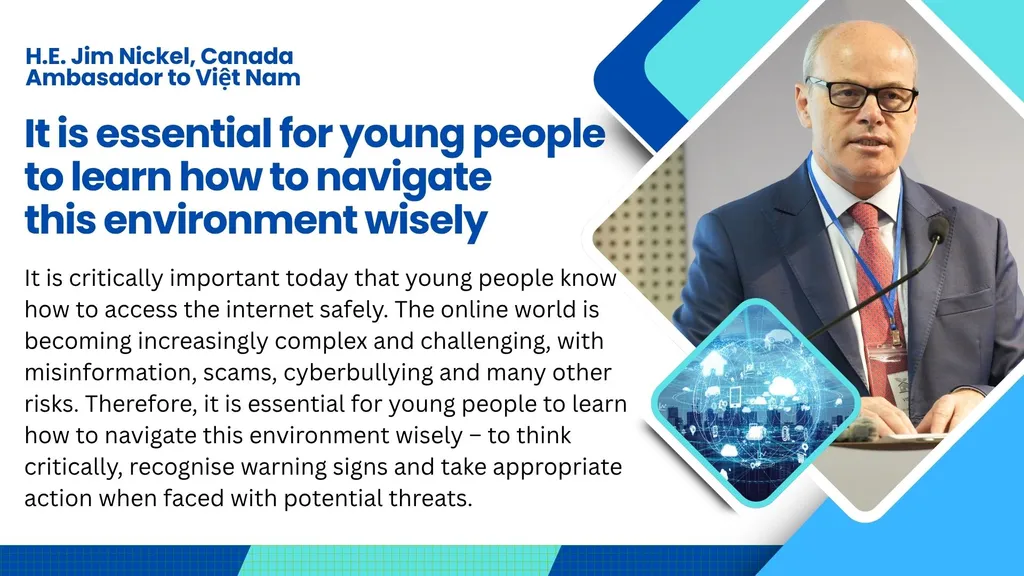 |
In just one day, participants learn to identify fake job offers, detect misinformation and design online campaigns on Facebook, TikTok, Zalo and Instagram that can reach hundreds or even thousands of other youths. Your infographic, your video, your message could help someone avoid a trap and stay safe.
 |
| Cybersecurity expert Ngô Minh Hiếu share his knowledge with the participants. Photo: IOM |
Each of you has the potential to be a changemaker. Every time you pause and think before you click, every time you encourage a friend to make an informed choice, you are contributing to a safer digital world and helping prevent irregular migration.
It is also crucial to ensure that young people have the tools and skills to make informed decisions about whether to migrate or stay. Together with government ministries, IOM supports programmes that equip young people with the skills needed to fill jobs in Việt Nam itself. When they feel they are contributing meaningfully to their families and communities, they are less likely to seek risky opportunities abroad.
On the law enforcement side, it is essential that immigration officials, border guards and police are trained and equipped to identify both scammers and victims. Once victims are identified, reintegration support is key. Without proper reintegration, victims may be tempted to migrate irregularly again, perpetuating the cycle.
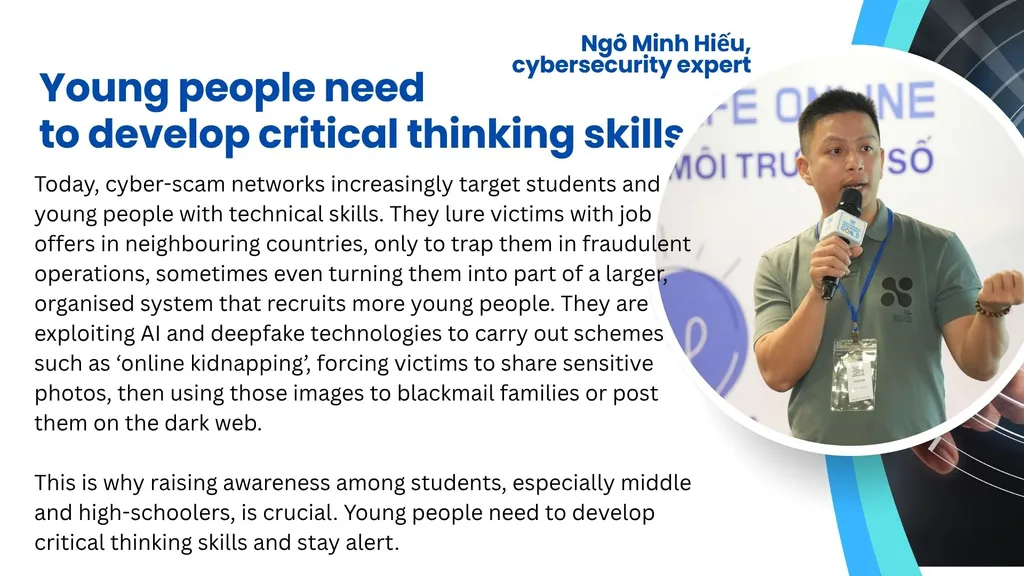 |
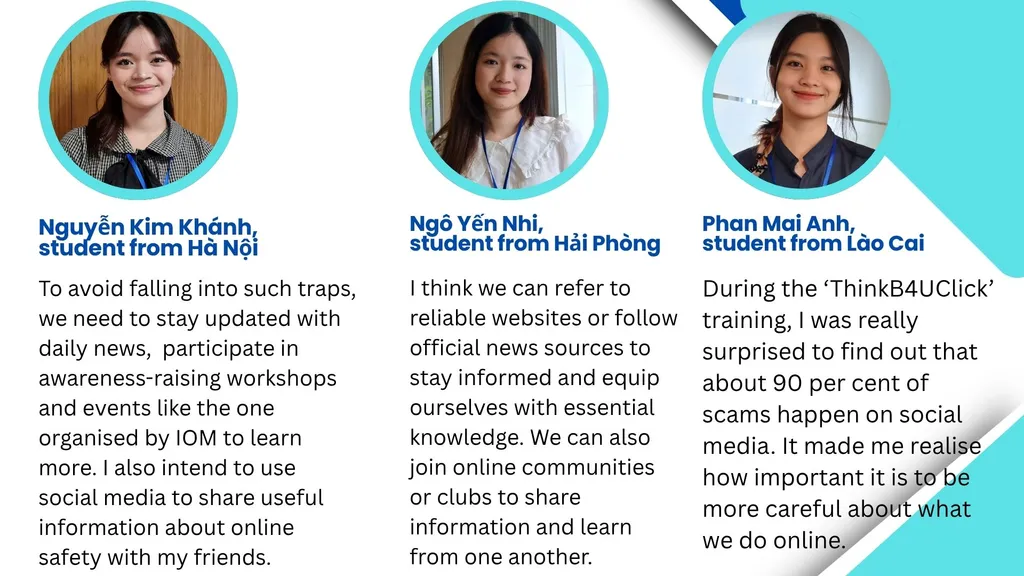 |


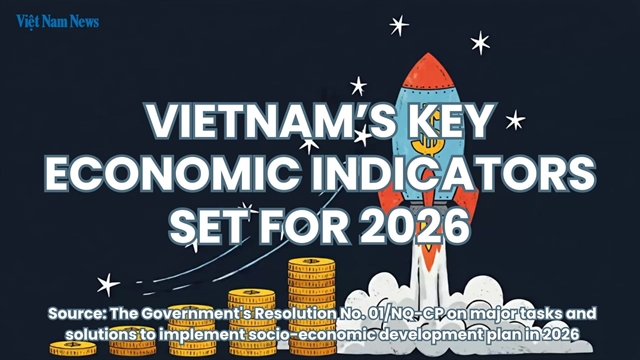
.jpg)
